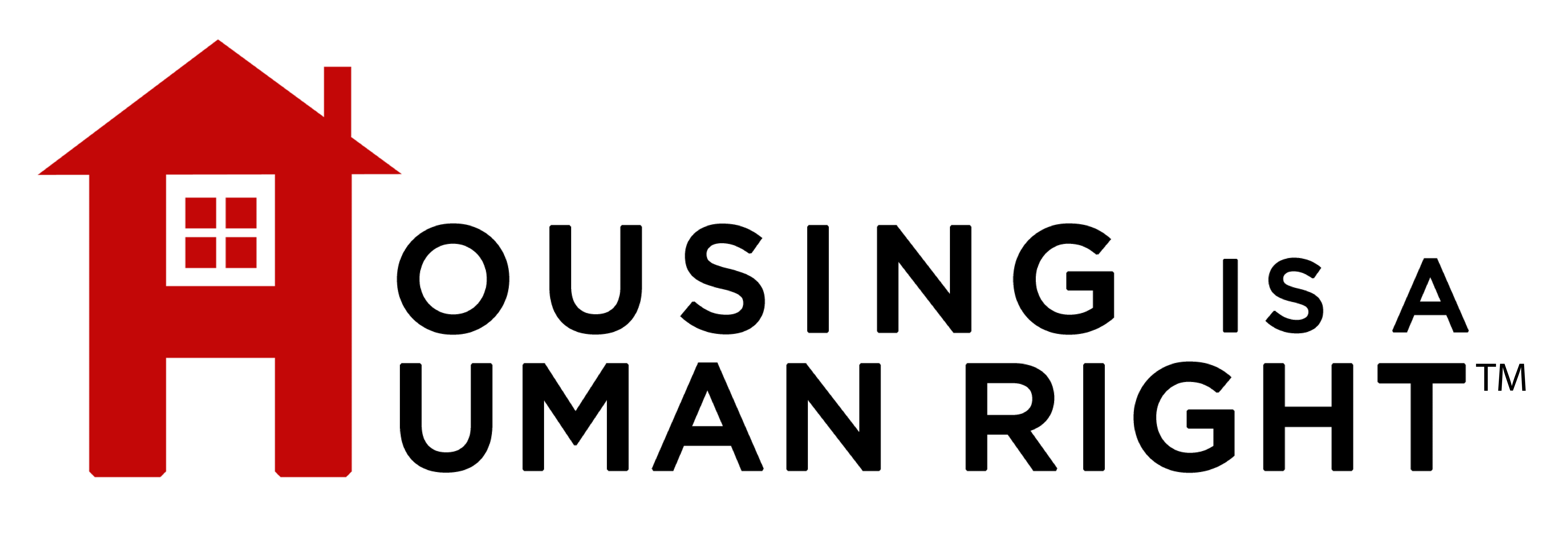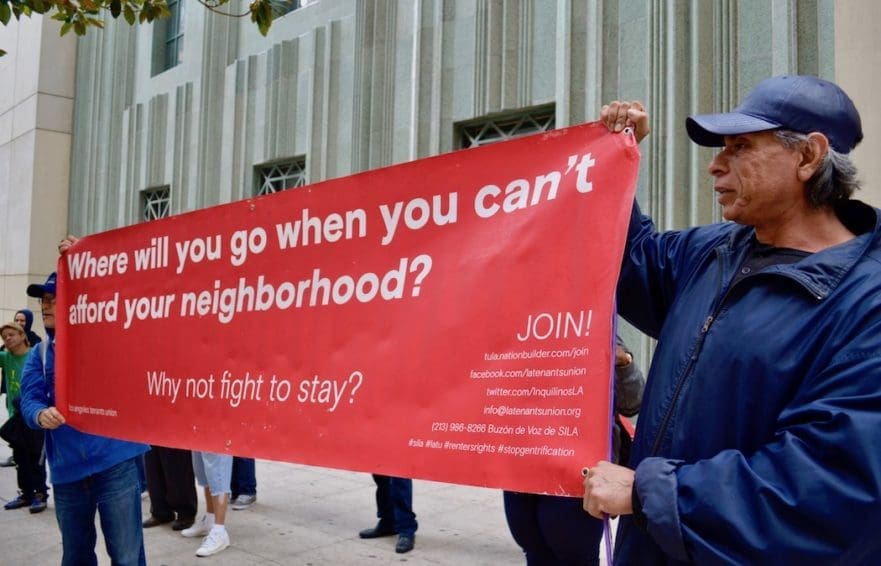Housing Is A Human Right strongly opposes California State Senate bills 9 (SB 9) and 10 (SB 10). These wrong-headed policies will be a boon for developers, but ignore the long-term, negative impacts on working-class communities, especially those of color. They must be stopped.
For years now, the California State Legislature continues to champion bills that benefit developers first and foremost — with no regard for the life-altering problems it will cause working-class residents, particularly people of color. SB 827 and SB 50, which were defeated by California’s housing justice movement, are just two recent examples. SB 9 and SB 10 follow that troubling pattern.
SB 9 gets rid of single-family home zoning, allowing a duplex on a single-family property or the split of that property. SB 10 is similar, allowing localities to rezone any land in so-called transit centers and jobs hubs for the construction of up to 10 market-rate apartments per parcel. This attack against single-family zoning coupled with pro-gentrification policies will most hurt working-class communities of color.
SB 9 and SB 10 invite predatory developers into moderate- and lower-income neighborhoods, where properties will be less expensive to buy. Developers will then build pricey, market-rate apartments, luring affluent tenants, driving up rents, and gentrifying a once-affordable community. Long-time, less affluent tenants will be forced out of the neighborhood, unable to pay rising rents.
In addition, SB 9 and SB 10 will destroy working-class communities of color that are rooted in homeownership — a key way to build wealth. Since properties in these neighborhoods will cost less than in more affluent communities, predatory developers will go where land is cheapest. They’ll demolish large swaths of single-family homes, construct over-priced apartments, and dramatically reduce single-family housing stock. Homeownership for working-class communities of color will become endangered — so will their ability to build wealth.
In the end, SB 9 and SB 10 will turn more individuals, particularly people of color, into permanent renters. Not only will they be forced to live with sky-rocketing rents and struggle to build wealth, but SB 9 and SB 10 will trigger a massive transfer of wealth that benefits corporate landlords and major developers, who will likely be the primary owners of the apartments.
SB 9 and SB 10 will inequitably and irreversibly turn single-family communities of color and middle- and lower-income neighborhoods throughout California into overbuilt, poorly planned, mostly rental communities with few local owners and insufficient infrastructure without due process, environmental review, or local voter input.
For any land-use legislation or policy, politicians must always consider the economic, social, cultural, and political impacts on communities of color and working-class residents. A recent Harvard study, for example, found that homeownership is a key tool for building wealth and financial security among lower-income residents and communities of color.
Yet SB 9 and SB 10 don’t take negative impacts into consideration. As a result, the legislation will fuel gentrification and displacement and worsen economic disparities. Housing Is A Human Right vigorously opposes the bills.
In the future, we urge state and local politicians to use a multi-pronged approach to address the housing affordability and homelessness crises. Housing Is A Human Right and its parent organization, AIDS Healthcare Foundation, have rolled out a housing platform that can be found here in PDF format. It utilizes what we call the “3 Ps”: protect, preserve, and produce.
“Protect” involves addressing gentrification and homelessness by keeping rent prices under control and discouraging evictions. “Preserve” entails supporting sustainable land-use policies that maintain neighborhood integrity — and first and foremost benefit residents. “Produce” involves creating affordable housing through the adaptive reuse of motels and other existing buildings and utilizing cost-effective new construction.
This strategy will directly and urgently assist the moderate- and lower-income people who have been hardest hit by the housing affordability and homelessness crises — and who need help the most.

